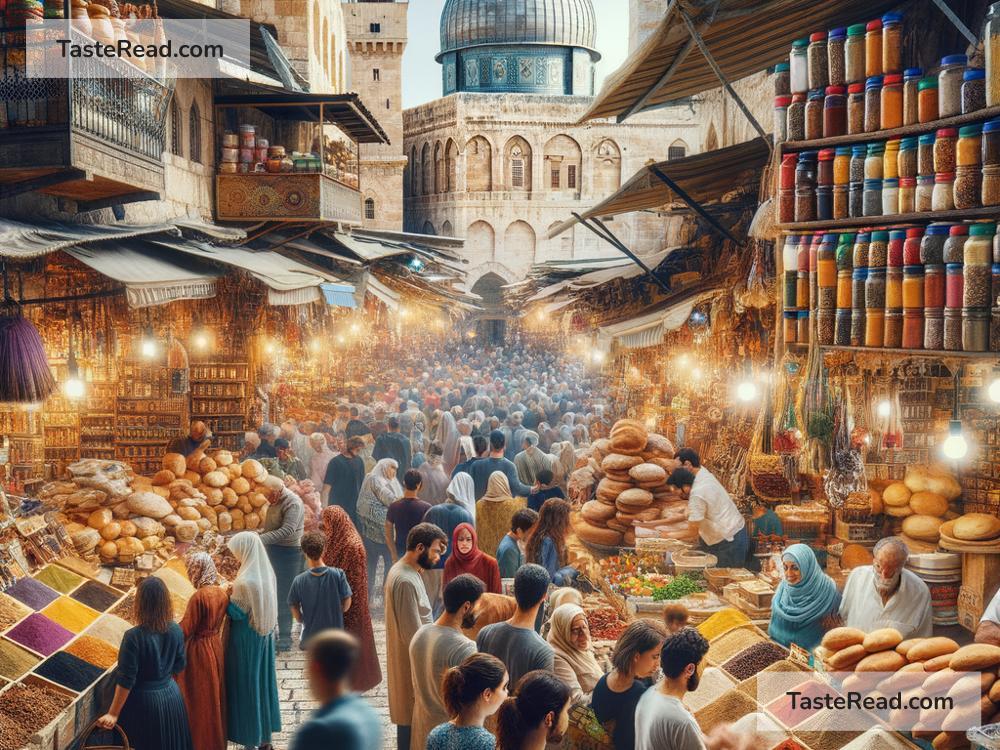Exploring the Ancient Food Traditions of Jerusalem Markets
Jerusalem, a city steeped in history, isn’t just known for its religious and historic significance. It’s also a culinary treasure trove, especially for those eager to dive into its ancient food traditions. The bustling markets of Jerusalem are places where the past and present collide, offering a sensory feast that is unrivaled. Today, let’s take a journey through these vibrant markets and discover the flavors that have been cherished for centuries.
Mahane Yehuda Market: A Melting Pot of Flavors
At the heart of Jerusalem’s food scene is the Mahane Yehuda Market, often simply called “The Shuk.” This marketplace is alive with sounds, scents, and the hustle and bustle of everyday life. Walking through the Shuk is like taking a step back in time while simultaneously experiencing the contemporary rhythm of the city.
The stalls here offer a dizzying array of foods that reflect the diversity of Jerusalem’s population. From traditional Jewish baked goods like challah and babka to Middle Eastern staples such as hummus, falafel, and shawarma, the Shuk is a food lover’s paradise. Yet, what captures the essence of ancient food traditions are the spices. Stalls piled high with vibrant spices such as za’atar, sumac, cumin, and turmeric not only tantalize the senses but also tell stories of trade routes, cultural exchanges, and culinary heritage that dates back thousands of years.
Old City Markets: A Journey Back in Time
Venturing into the labyrinthine alleys of Jerusalem’s Old City, one enters a world where time seems to stand still. The markets here, with their stone pavements and centuries-old arches, offer a glimpse into the past. Vendors sell traditional foods that have been part of Jerusalem’s culinary landscape for generations.
One cannot talk about ancient food traditions without mentioning bread, a staple of life in Jerusalem for millennia. In the Old City, bakeries produce traditional bread like taboon and pita over flames, using methods that have remained unchanged over centuries. These breads are more than just food; they’re a connection to the past, linking present-day inhabitants with their ancestors.
The Old City is also home to sweets and treats with historical significance. For instance, qatayef, a type of sweet folded pancake filled with nuts, is often found here, especially during Ramadan. There’s also halva, a dense, sweet confection made from sesame paste, a treat that has satisfied sweet tooths in Jerusalem for generations.
The Culinary Tradition of Olive Oil
Olive oil deserves a special mention when discussing Jerusalem’s ancient food traditions. Olive trees have been cultivated in the region for thousands of years, and olive oil is a cornerstone of local cuisine. In Jerusalem’s markets, you can find a variety of olive oils, from the light and fruity to the rich and peppery. This liquid gold was not only a dietary staple but also played a role in religious rituals and medicinal practices throughout history.
Herbs and Health: The Role of Local Flora
The markets of Jerusalem are also a testament to the ancient understanding of the medicinal properties of local herbs and plants. For centuries, the inhabitants have used herbs not just to flavor their food but also to heal. Walking through the markets, one can find stalls dedicated to traditional remedies, offering everything from sage and mint to more obscure herbs like za’atar and hyssop. These plants, grown in the hills around Jerusalem, are a living link to the ancient world, reflecting a deep knowledge of the natural world’s bounty.
Conclusion: A Living History
Exploring the ancient food traditions of Jerusalem’s markets is more than a culinary adventure; it’s an immersion into a living history that continues to thrive in the modern world. Each market, each stall, tells a story of survival, adaptation, and the enduring power of food to bring people together. Whether it’s through the spices that speak of ancient trade routes, the traditional bread that connects us to our ancestors, or the olive oil that has illuminated lives for centuries, Jerusalem’s markets are a testament to the city’s rich and vibrant heritage.
So, the next time you find yourself wandering the alleys of the Mahane Yehuda or the Old City markets, take a moment to savor not just the flavors but also the history and traditions that these foods represent. It’s an experience that feeds the soul as much as the body, connecting us to the past and inspiring a sense of wonder for the generations yet to come.


